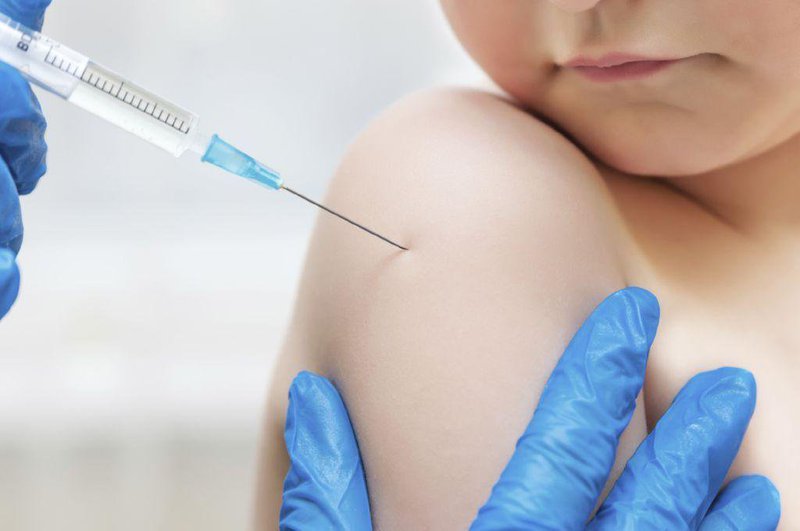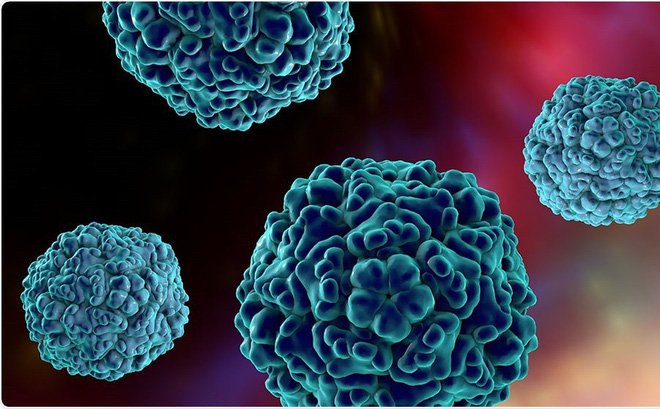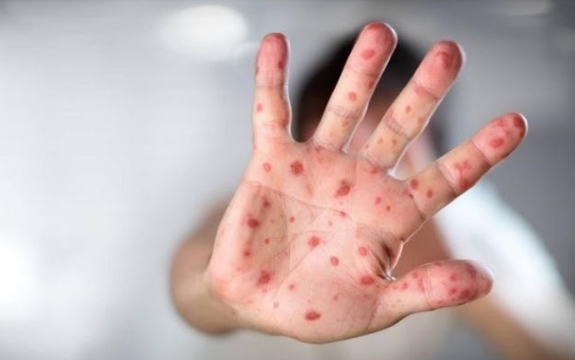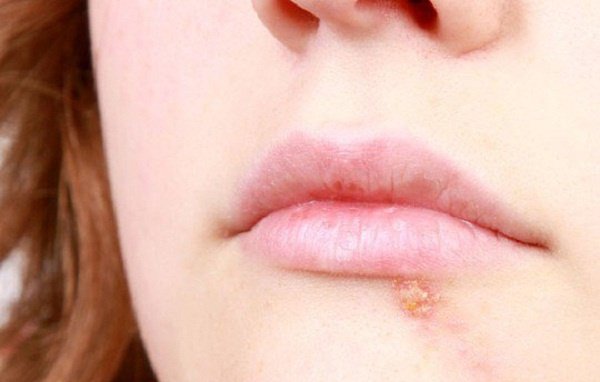What to eat when you have chickenpox and what to avoid
This is an automatically translated article.
An immunodeficiency disorder means that the immune system is compromised, making it difficult for the body to fight off viruses, diseases, and infections. Minimizing the symptoms of infection as well as staying hydrated and getting adequate nutrition are the best ways to help control chickenpox.
1. What is chickenpox?
Chickenpox is one of the manifestations of the varicella-zoster virus. Chickenpox is a highly contagious and unpleasant disease that is characterized by the following symptoms: fever, nausea, fatigue, muscle cramps, and an itchy, scaly, and blistering rash that covers the entire body. .
Occasionally, complications of the disease may develop. It includes ulcers, hepatitis, pancreatitis, pneumonia, and even stroke.
2. Treatment of chickenpox
Although the vaccine has reduced the number of people who get chickenpox each year. However, there are currently no drugs capable of directly treating varicella-zoster virus. A meta-review of 6 studies measuring the effectiveness of treatments for chickenpox in humans found that taking acyclovir within 24 hours of the onset of chickenpox symptoms could help treat the infection. both in children and healthy adults.
Another study also found similar results. In addition, a meta-analysis of 11 human observational studies noted that oral acyclovir appeared to treat chickenpox, even though it was only used within the first 24 hours. Acyclovir is an antiviral medication that is usually taken by mouth as a pill or as an ointment that is applied topically in infected areas.
Some researchers think that there are not many treatment options for chickenpox other than acyclovir. And treatment for someone with chickenpox often revolves around symptom control and pain relief.

Điều trị thủy đậu giúp giảm đau, giảm ngứa cho bệnh nhân
Some of the most common ways to manage chickenpox symptoms:
Use acetaminophen to reduce fever. While taking other medicines like aspirin and ibuprofen also works, it has been linked to potentially fatal side effects in children Avoid scratching the rash to keep the infection from spreading Reduce pain and itching relief with baths and soothing lotions Eat plenty of healthy and easily tolerated foods Stay hydrated
3. General dietary guidelines for chickenpox patients
The chickenpox virus rash not only affects the whole body, but it also affects the tongue, mouth and throat on the inside.
In fact, a study of 62 children aged 2-13 years found that the number of oral lesions caused by varicella-zoster virus ranged from 1-30, depending on the severity of the disease. severity of each particular case. So, what should you eat if you have chickenpox and what should you avoid if you have chickenpox? It is best for sufferers to avoid foods that can further irritate oral lesions such as spicy, sour, salty and crunchy foods.
Also, if the immune system is already compromised, the chickenpox virus is more likely to cause more severe complications such as gastritis. This inflammation will cause symptoms such as pain, nausea, and vomiting.
Following a light, easily tolerated diet is the best way to ensure that the sick person can be well nourished during the battle against chickenpox.
Although it is not common, another possible concern with chickenpox is an increased risk of anemia or iron deficiency. Therefore, during this period, the patient should consume foods rich in iron to improve the condition of the day.
4. The role of amino acids in the diet of people with chickenpox
Replication of certain viruses depends on different amino acid levels in the body. Two amino acids specifically arginine and lysine that play a role in protein synthesis have been recognized to influence viral growth.
One virus that seems to be particularly sensitive to changes in amino acid levels is herpes simplex virus type 1 (HSV-1). HSV-1 is the virus that causes blisters, also known as cold sores. While, arginine is believed to promote the growth of HSV-1, lysine is believed to inhibit its growth. Some have suggested that the same may be true of the varicella-zoster virus and its manifestations including chickenpox and shingles.
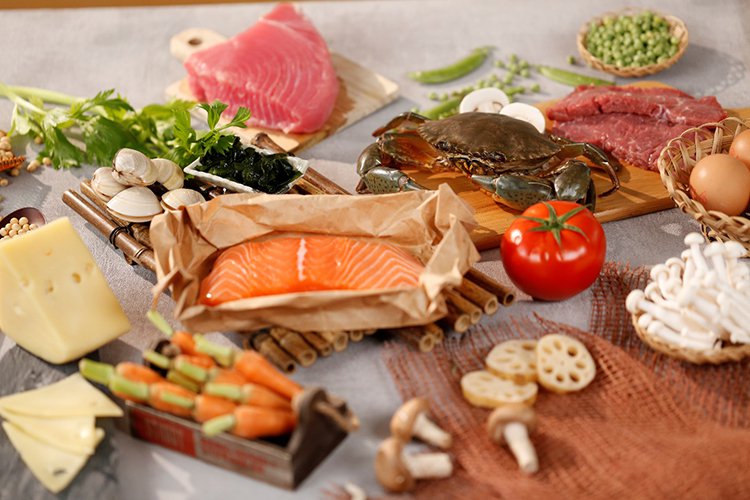
Thực phẩm giàu acid amin rất tốt cho bệnh nhân mắc thủy đậu
However, not many human studies have been done on the effect of amino acid intake on chickenpox. Therefore, there is currently insufficient evidence to support the claim that a diet high in lysine and low in arginine can improve symptoms of chickenpox.
5. Some foods used in the chickenpox patient's diet
Here are some safe and tolerable foods recommended for people with chickenpox:
Soft foods: Mashed potatoes, sweet potatoes, avocados, eggs, beans and lentils, tofu, boiled chicken, boiled fish Cold foods: Yogurt, kefir, ice cream, cheese, milkshakes, smoothies Sweet foods: Rice, toast, pasta, oatmeal, Acid-free fruits and vegetables : apples, bananas, melons, berries, peaches, broccoli, kale, cucumbers, spinach Maintaining a diet and eating a variety of healthy foods is important to help the body fight chickenpox virus and quickly recover the body. However, keeping the body hydrated is equally important for the treatment of chickenpox.
Chickenpox can affect areas such as the mouth and throat. That can affect food consumption and also cause pain for the patient. Therefore, for this reason can put people with the virus at high risk of dehydration.
Some drinks can provide water for the body such as: water, coconut water, herbal tea, low-sugar sports drinks, electrolyte-infused drinks. However, there are also certain beverages that can contribute to dehydration, such as sugary fruit juices, coffee, soft drinks, energy drinks, and alcohol.
6. Some foods should be avoided in the chickenpox diet
Diet for people with chickenpox is very important to the treatment of the disease. Some people ask: "Should I eat fish if I have chickenpox?". Fish is a food rich in nutritional value, especially a rich source of unsaturated fatty acids. So, just don't eat fish in case it contains too much salt and can irritate the condition. So eating foods like foods should not be used for chickenpox patients. These are foods that can irritate or aggravate symptoms in people with blisters inside or around the mouth.
Spicy foods: Peppers, hot sauces, salsa, garlic Acidic foods: Grapes, pineapples, tomatoes, citrus fruits and juices, pickled foods, coffee Salty foods: Cookies, chips, broth, vegetable juices Hard and crunchy foods: Popcorn, almonds, nuts, fried foods.
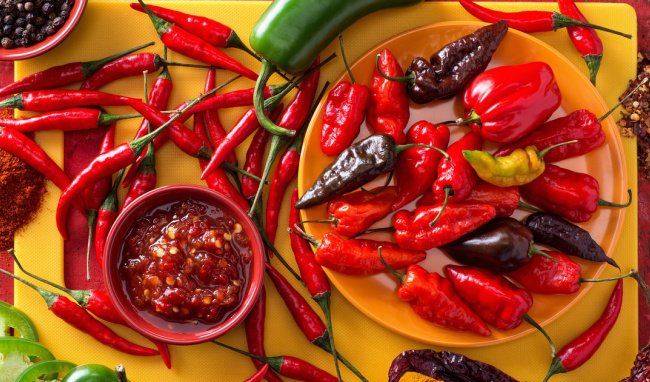
Bệnh nhân bị thủy đậu không nên ăn cay
Chickenpox is a contagious and uncomfortable disease. Although there is a vaccine, there is currently no direct treatment for this disease. Therefore, treatment is mainly about managing symptoms and reducing pain for the patient. Furthermore, a complete and healthy diet can help improve the condition. In addition, drink water and foods that can help hydrate the body to help the body fight infections.
Vinmec International General Hospital with a system of modern facilities, medical equipment and a team of experts and doctors with many years of experience in medical examination and treatment, patients can rest assured to visit. examination and treatment at the Hospital.
To register for examination and treatment at Vinmec International General Hospital, you can contact Vinmec Health System nationwide, or register online HERE.
Reference source: healthline.com
SEE MORE
What to know about chickenpox vaccine How to properly care for a child with chickenpox to avoid dangerous complications Can chickenpox come back?
This article is written for readers from Sài Gòn, Hà Nội, Hồ Chí Minh, Phú Quốc, Nha Trang, Hạ Long, Hải Phòng, Đà Nẵng.


